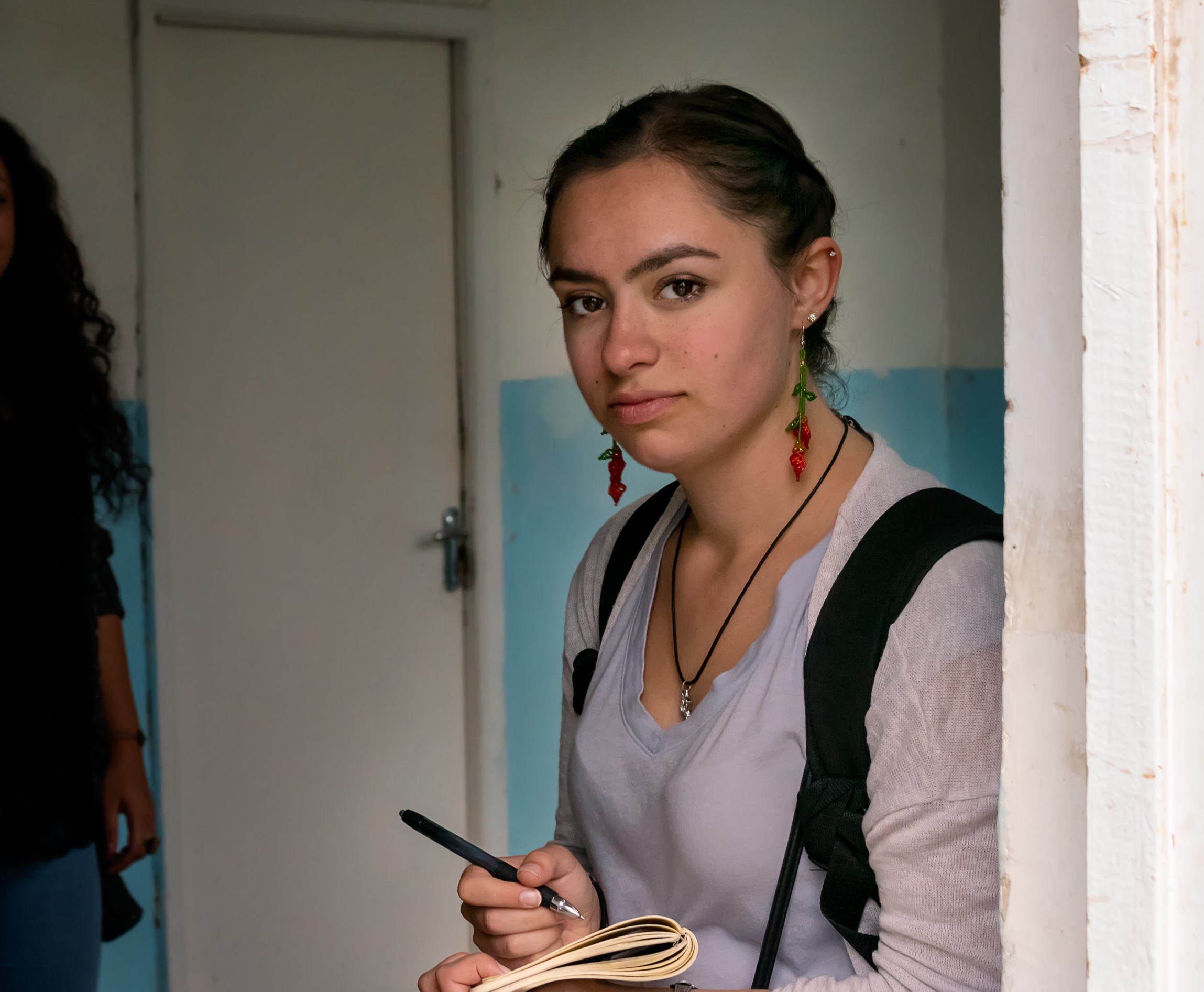This past Saturday I went to a rally in support of Palestinians fighting against military expulsion from their homes. As an Armenian in 2021, the story is all too familiar. Soldiers with powerful weapons and advanced military hardware attack civilians, violently forcing them from their homes so settlers of another ethnic group can take them. International human rights institutions do nothing. The US military supports the violence.
As I heard Palestinian activists calling for an end to the ethnic cleansing of their people, their anguish and rage were chilling reminders of the anger and despair I had come to know so well in 2020. As an Armenian, I do not have to wonder what it would be like to hear daily reports of violence and ethnic cleansing, read infuriatingly biased and inaccurate news headlines and feel powerless to stop the suffering of my friends abroad.
#SaveSheikhJarrah refers to a neighborhood in East Jerusalem, where a court order has ruled in favor of the forced expulsion of at least six families from their homes in order to make way for Jewish settlers. Late last month, Israeli extremist groups marched through the city chanting “Death to the Arabs.” Israeli forces have continued to brutalize and murder peaceful protestors in the area. The attacks are part of a continuing campaign to ethnically cleanse Palestinians from their homes. The Institute for Middle East Understanding, Middle East Eye, and other sources are providing updates on the developing situation.
I attended Saturday’s rally with members of SWANA Chicago, a new organization with a mission to build solidarity among members of groups from Southwest Asia and North Africa in the area. The group was founded by Armenian activists who had wished for something similar during the 2020 Artsakh War. The rally was organized by Students for Justice in Palestine; activists from Jewish Voice for Peace, US Palestinian Community Network, American Muslims for Palestine also participated. “From the US to Israel to Azerbaijan to Turkey to Ethiopia….How many billions of dollars, how many drones float between these states?” said Brian Damerau of SWANA Chicago. “Even here, in our cities, how many of the US police have been trained by the IDF? How many genocides are being committed for the expansion of state and capital?”
Since the 2020 war, I have noticed a growing consciousness among Armenians about showing up for other oppressed groups with shared struggles. For me, the 2020 Artsakh War was a wake-up call in so many ways, and it showed me how crucial solidarity is.
I attended the rally because I believe that the attacks, apartheid and ethnic cleansing imposed on Palestinians by the Israeli government is wrong. But it also reminded me of an important lesson I learned in the past year about solidarity.
During the 2020 Artsakh War, another Armenian activist and I reached out to a queer SWANA organization in our area about hosting a fundraiser to provide immediate aid to Artsakh. After the lack of support from non-Armenians at the time, we weren’t expecting much, so we were surprised when they responded enthusiastically. The organizers guided and supported us through the process of organizing an online event that featured three Armenian artists, garnered the largest online audience the organization had ever seen, and raised money for Kooyrigs’ immediate aid efforts. They didn’t ask for anything; they were just there to support us and their struggle. It was then I realized that we as Armenians don’t have to fight alone.
In my experience, it is important to remember that solidarity is not transactional. I don’t go to a protest for someone else’s cause so that they will show up for mine. But if we expect others to stand up for our human rights, we must work to be the kind of people who always stand up for the human rights of others. Solidarity is based on relationships, and we can build relationships by fighting with members of other groups for a more just future for everyone. We cannot wait for solidarity with other marginalized groups to appear. We must build it.



It’s worth noting that Israel’s staunchest supporters are Jew-hating evangelical Christians (Pat Robertson, John Hagee, Robert Jeffress, the late Jerry Falwell), while some of the strongest criticism of Israel has come from Jews (Noam Chomsky, George Soros, Bernie Sanders, Amy Goodman, Sarah Silverman).
Dear Araxi, your article was refreshing and encouraging. I am Armenian born and raised in Jerusalem, Palestine. I was there when the first Arab-Israeli war began in 1948. Israelis truly believe that they are Gods gift to humanity. They have a masterplan for Palestine and nothing can deter them to execute their plan. Only the US Administration can intervene to broker a peace plan between the Arabs and Israelis. Unfortunately politically the US is not prepared to intervene. The Palestinian struggle has been going on for over 70 years.There is no solution in sight.
I have never agreed with a comment more in my life. Israelis strolled in Lebanon with such entitlement in 2006 after massacring Shias like they were ISIS and whines when we God forbid fought back. People forget a good amount of Palestinians kicked out were Armenian refugees. Israelis also have the gull to try to turn Lebanese population against Palestinians as if we don’t remember what they did.
The silence of Armenian social media influencers is palpable.
There were a couple that said stuff but Israelis already harass Palestinian-Armenians all the time so it must be hard. Honestly the worst silence was from other Arab influencers especially Lebanese influencers because the first people there for us (despite how Lebanon treats Palestinian refugees) were the Palestinians.